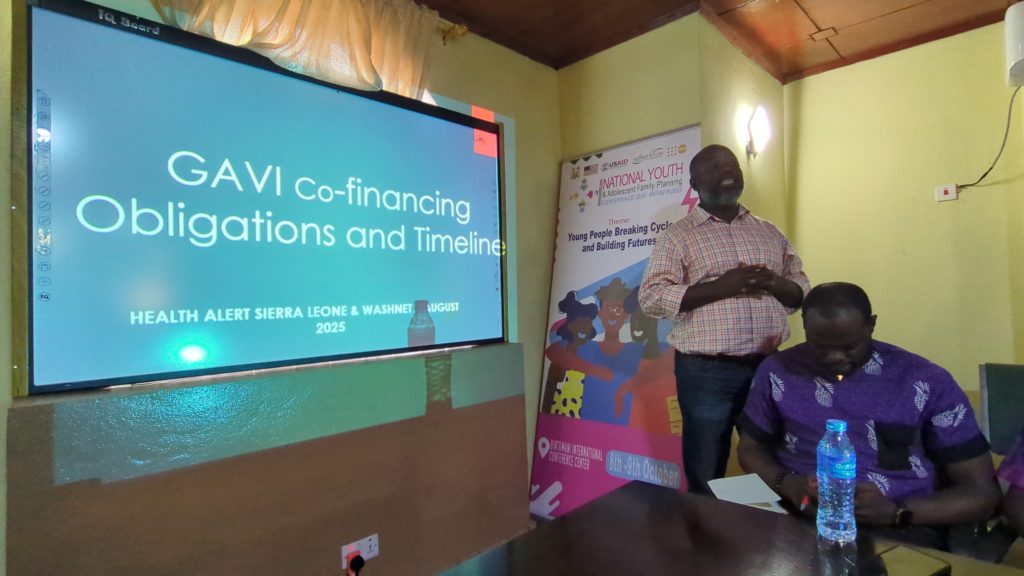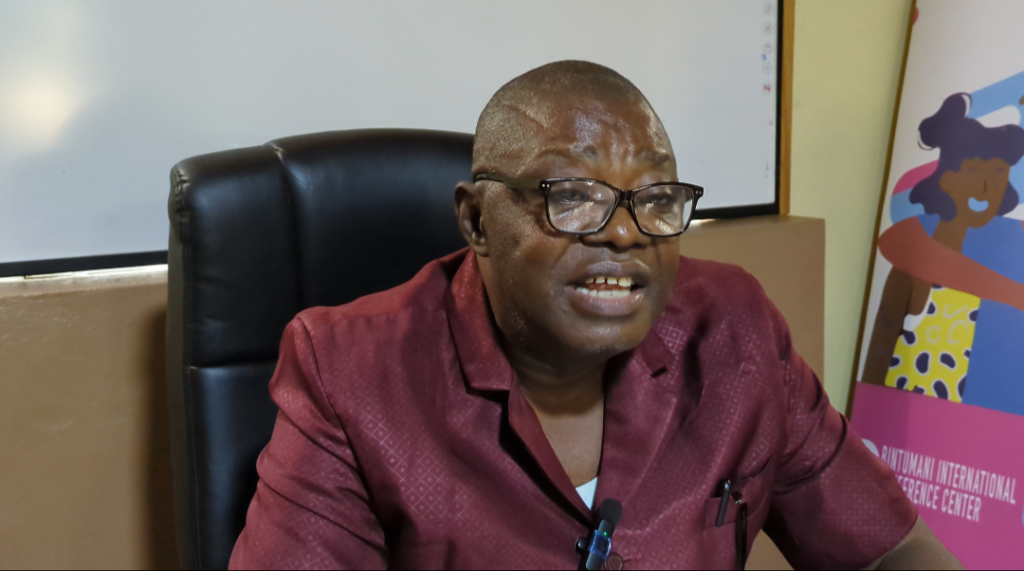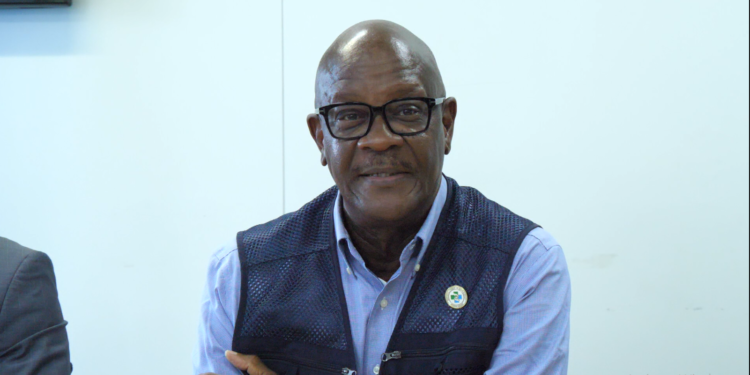By Kemo Cham

Sierra Leone could be hit by serious stockouts of live-saving childhood vaccines unless the government honors its co-financing commitment by end of this month, the Global Vaccine Alliance – GAVI – has warned, according to healthcare campaigners.
GAVI, the largest funder of the country’s vaccination programme, has vowed to withhold funding for critical vaccines if the government of President Julius Maada Bio doesn’t make its co-financing payments before 31st August 2025.
Document seen by ManoReporters reveals that the Bio Administration committed to paying US$823,680 as counterpart funding in 2025 for key vaccines, including Pentavalent, a group of five critical vaccines targeted as the top killer diseases among infants in the country.
The development has sparked concerns among healthcare campaigners. One of the country’s leading advocacy groups, Health Alert, has appeal to the government to act urgently to avert a potential catastrophe.
“This delay directly threatens the health and lives of thousands of children across our country,” it said in a statement released on Friday.
Gavi, established in 2000, is an international organisation that brings together public and private sectors with the shared goal of saving lives and protecting people’s health by working to increase equitable and sustainable use of vaccines. The alliance is the largest funder of vaccine programmes in developing countries. But it operates under certain agreements with beneficiary countries. One of the conditions involved is co-financing for some key vaccines, including Pentavalent, which protects against five major childhood diseases: diphtheria; tetanus; pertussis, otherwise known as whooping cough; hepatitis B; and Haemophilus influenzae type b (Hib) disease. Another set of vaccines funded by GAVI in Sierra Leone as part of its agreement are Measles-Rubella (MR) vaccine, Rotavirus vaccine, Yellow Fever vaccine, Human Papillomavirus (HPV) vaccine, Malaria vaccine and pneumococcal Conjugate vaccine. In the agreement, the Sierra Leone government pays for 10 percent, with GAVI taking care of the remaining 90 percent of the total cost involved, which is over USD14million.
According to sources, GAVI warned the government since June about the consequences of delays in making its co-financing payments.
Details of a letter sent through the Ministry of Health reportedly reminded the government of commitments made by the Ministry of Finance in 2025 to contribute the sum of $823,680 to support the procurement of the essential vaccines. Yet, as of Thursday, only $101,873 has been paid for Pentavalent alone. The remaining $721,807 for the other vaccines, including Measles-Rubella, Rotavirus, Yellow Fever, HPV, Malaria, and PCV—remains unpaid.
“These are deadly diseases. And they are urgently needed. And because they are deadly, that’s why GAVI offered to pay 90 percent and asked government to pay the remaining 10 percent,” which they committed to,” Executive Director of Health Alert Victor Lansanah Koroma told reporters at a press briefing on Thursday.
GAVI set the deadline for payment of these outstanding monies at August 31st, after which it says it will withhold its own contribution.
The Sierra Leone government is expected to pay its contribution to the UN children’s agency, UNICEF, which usually procures vaccines on behalf of GAVI.
Campaigners are worried that once vaccines run out, it may take up to three months before new shipments arrive, hence the need for the government to act urgently.
“If these young kids, these infants, these children are not taking vaccines, it will roll back all the gains that we have made in measles, in polio, in pneumonia and all several other respiratory tract diseases,” says Dalton John, Programmes Manager at Health Alert.
Immunization is considered as one of the best public health investment for vaccine-preventable diseases. And it is considered by the World Health Organization (WHO) as key to primary health care and an “indisputable” human right. According to the global health agency, immunization currently prevents 3.5 million to 5 million deaths every year from diseases like diphtheria, tetanus, whooping cough, influenza and measles.

Sierra Leone, once home to some of the world’s highest maternal and infant mortality rates, has made significant progress in both indices. It has made more inroads in maternal mortality, although great improvement was also made with child health. And vaccines have been very instrumental in this journey. Consequently, the country has been recognized for its efforts as champion of vaccination by both the Africa CDC and WHO. As a symbol of this recognition, Sierra Leone was honored to host the 2025 African Vaccination Week in April. And in June, President Bio was again honored to address the GAVI Global Summit in Brussels, Belgium, where he called for renewed global commitment to health equity and immunisation access for all children, arguing that health through immunization shouldn’t be a privilege.
“When a child is denied a vaccine, they are denied opportunities for life, growth, and advancement. This is not only a failure of health systems but also a failure of justice,” the President said in his address to the world leaders.
Critics now say that reports of Bio’s government’s failure to fulfill its commitment to procure life-saving vaccines for its own citizens raise questions about the President’s commitments to global health.
“Even though we recognize the effort made by Government to support immunization and also the improvement on the health indicators, but we believe the progress is slow, and we cannot allow the gains made in child survival and the reduction of infant mortality to collapse,” Health Alert said in its statement.






















